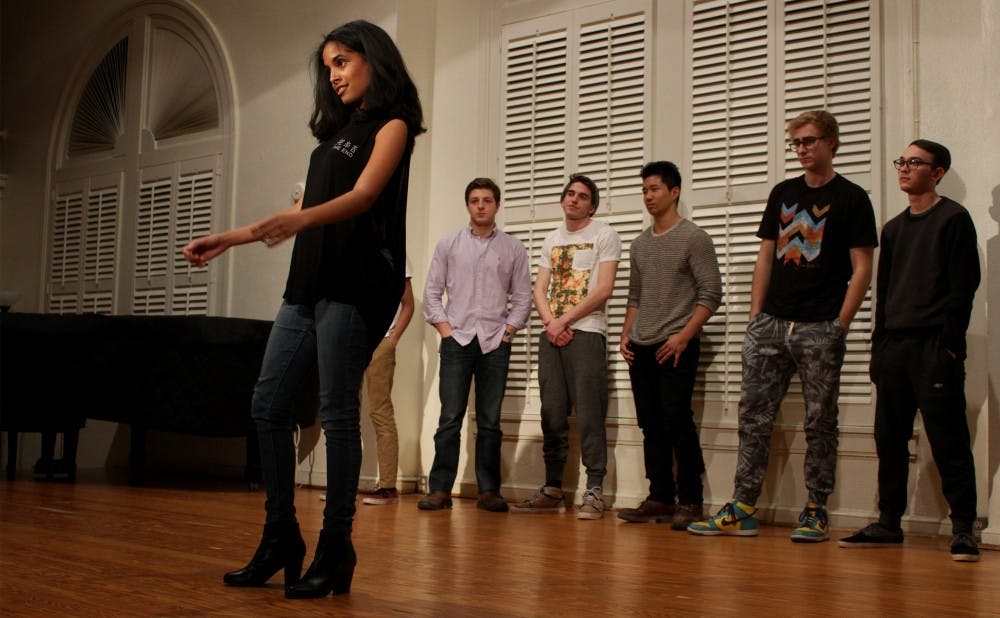Me Too Monologues opens Friday night with student interest at an all-time high.
The show—now in its seventh year—addresses identity issues including sexuality, gender, class, religion and disability through a series of monologues performed by students. The concept for the production has now spread to five other universities, including Columbia University, the University of Alabama, Princeton University, Marist College and the University of North Carolina at Chapel Hill, the last of which will launch its own Me Too Monologues this Spring.

“We have seen the incredible impact it has made in shaping Duke culture and combatting the effortless perfection myth by placing students in a place where vulnerabilities are openly shared,” said senior Cara Peterson, the show’s director of programming and national expansion. “All we want is for this same magic to occur on other campuses as well.”
Peterson explained that production has expanded through student-to-student contact—crediting the show’s theatrical director Kari Barclay, a junior, with making a number of the connections at other universities.
She noted that though a handbook and mission statement will be given other schools to preserve the integrity of the show, they will also be encouraged to make it their own.
“We want them to bring their own creativity to it in the way we have been able to,” Peterson said. “All we need is students who are passionate in the same way we are.”
When the production began in 2009, it was a one-night event centered largely on race. By 2014, it addressed the full scope of variables related to identity and had expanded to two weekends with over 2,200 viewers—almost one third of the undergraduate population.
A similarly large, if not larger, turnout is expected this year, said senior Cortnay Cymrot, the show’s executive producer.

“Many of this year's monologues feature new voices that haven’t yet been heard,” Cymrot said. “The submissions we received this year were much shorter than they have been in previous years, so we were able to include more monologues than last year—which means more stories are told and more perspectives offered.”
She noted that more than 70 monologues were anonymously submitted—a number comparable to last year’s—and 18 of them were chosen to be performed in the show.
Barclay added that the production has increased the artistic factor of this year's monologues.
"This year we focused on making the monologues more theatrical in terms of staging," he wrote in an email Thursday. "This meant putting multiple actors on stage at once and experimenting with different kinds of movement. Hopefully this gives our audience different ways of experiencing the pieces."
Get The Chronicle straight to your inbox
Signup for our weekly newsletter. Cancel at any time.

